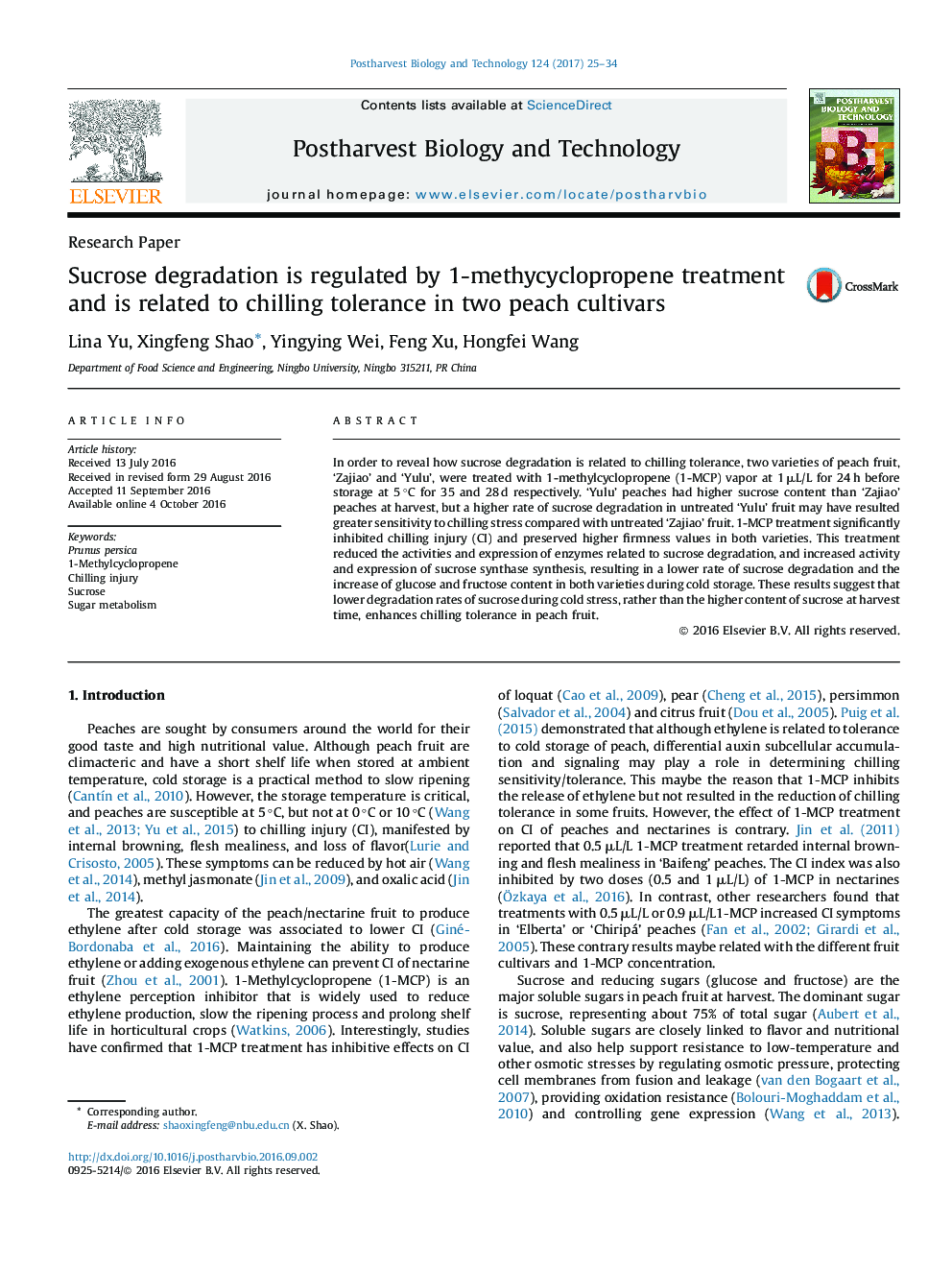| Article ID | Journal | Published Year | Pages | File Type |
|---|---|---|---|---|
| 4517653 | Postharvest Biology and Technology | 2017 | 10 Pages |
•Higher sucrose degradation rates in ‘Yulu’ peaches results in higher chilling injury.•Lower sucrose degradation rates in ‘Zajiao’ peaches results in lower chilling injury.•1-MCP treatment significantly reduced CI in both peach cultivars.•1-MCP treatment reduced sucrose degradation in both peach cultivars.
In order to reveal how sucrose degradation is related to chilling tolerance, two varieties of peach fruit, ‘Zajiao’ and ‘Yulu’, were treated with 1-methylcyclopropene (1-MCP) vapor at 1 μL/L for 24 h before storage at 5 °C for 35 and 28 d respectively. ‘Yulu’ peaches had higher sucrose content than ‘Zajiao’ peaches at harvest, but a higher rate of sucrose degradation in untreated ‘Yulu’ fruit may have resulted greater sensitivity to chilling stress compared with untreated ‘Zajiao’ fruit. 1-MCP treatment significantly inhibited chilling injury (CI) and preserved higher firmness values in both varieties. This treatment reduced the activities and expression of enzymes related to sucrose degradation, and increased activity and expression of sucrose synthase synthesis, resulting in a lower rate of sucrose degradation and the increase of glucose and fructose content in both varieties during cold storage. These results suggest that lower degradation rates of sucrose during cold stress, rather than the higher content of sucrose at harvest time, enhances chilling tolerance in peach fruit.
